#if you have a girlfriend who's writing a shadow theatre play about your love story for your birthday you better kiss her good!
Explore tagged Tumblr posts
Text


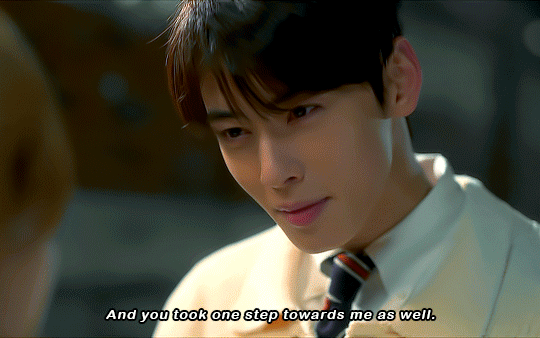


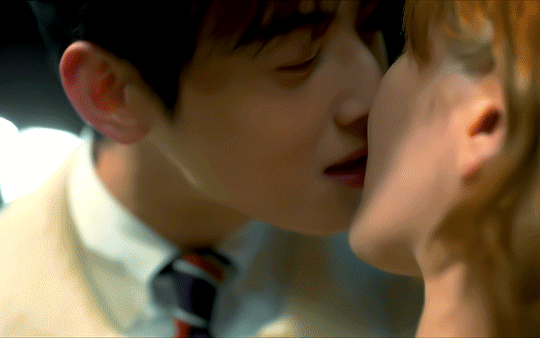
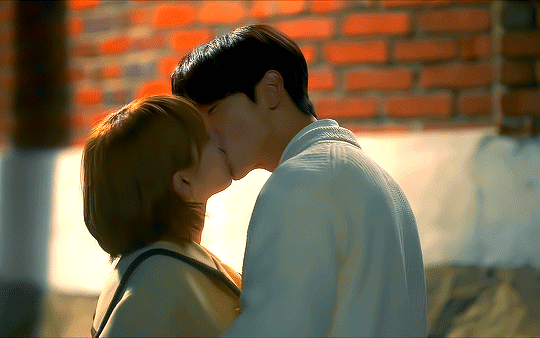
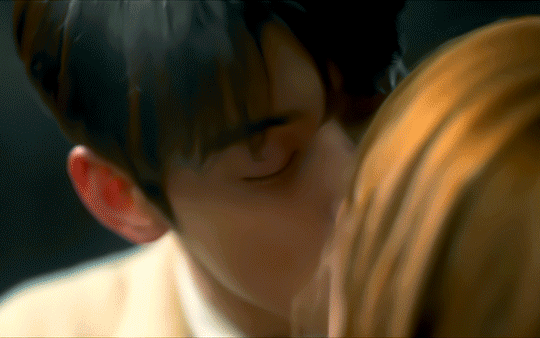
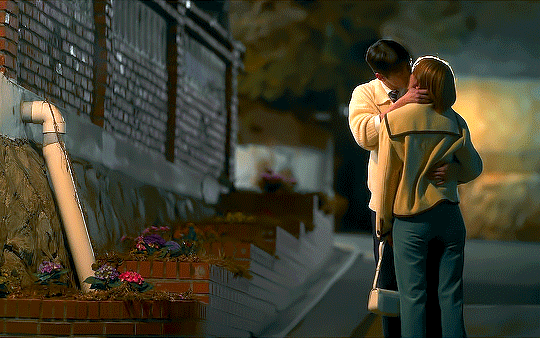
Thank you for the gift. It was the best gift I've ever received. Did you watch it? How was it? Well...
A GOOD DAY TO BE A DOG - EPISODE 14
#a good day to be a dog#kdramadaily#kdramaedit#kdramanetwork#dramasource#my edits#awekslook#cha eunwoo#eunwoo#park gyu young#if you have a girlfriend who's writing a shadow theatre play about your love story for your birthday you better kiss her good!#mine: a good day to be a dog
481 notes
·
View notes
Text
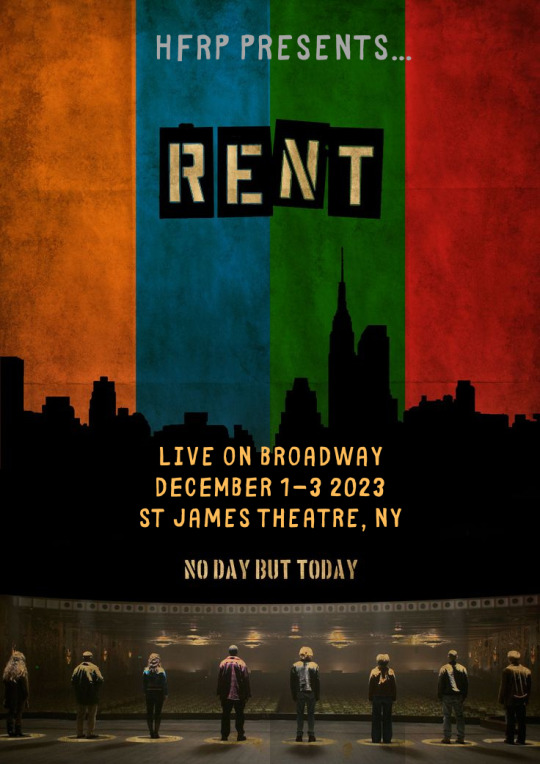
THERES ONLY US THERES ONLY THIS NO DAY BUT TODAY….
Hollywood Fame is going to Broadway!
From December 1-3 we will be staging a production of Rent the Musical at the St James Theatre in the heart of Broadway in New York City and it will be starring you!
We are looking for cast members to fill out the roles below. Your character can be well versed in the world of musicals or simply just wanting to try something new. All we ask that you stick within the playing ages of each role. If you would like to take part, simply message us the name of the character and the role they would like to play! This will be on a first come first served basis. We ask that only one character per mun signs up at present. You have until 11/21/23 @ 11.59 PM EST to sign up.
Not a fan of performing? No worries we will need an audience to cheer on our amazing cast! Cast list and rehearsal schedule will follow soon! Follow the tags #hfrprent and #hfrpbroadway for more.
PLOT:
Set in the East Village of New York City, Rent is about falling in love, finding your voice and living for today. Winner of the Tony Award for Best Musical and the Pulitzer Prize for Drama, Rent has become a pop cultural phenomenon. with songs that rock and a story that resonates with audiences of all ages. Based loosely on Puccini's La Boheme, Jonathan Larson's Rent follows a year in the life of a group of impoverished young artists and musicians struggling to survive and create in New York's Lower East Side, under the shadow of HIV/AIDS. How these young bohemians negotiate their dreams, loves and conflicts provides the narrative thread to this groundbreaking musical.
RENT features many adult themes, including sex, drug use, profanity, and same-sex intimacy.
CHARACTER BREAKDOWN:
MARK COHEN
Stage age: early to late twenties Vocal Range: Tenor (C#3-G4)
Mark is an aspiring filmmaker who narrates the show as he films the lives of his friends. Mark never leaves home without a camera. He is Roger's best friend and caregiver, and he was once Maureen’s boyfriend (who left him for Joanne). Mark is a little nerdy and quirky. He insists that he can survive the bleakness of his environment through his art. It soon becomes apparent, though, that he is more comfortable viewing the world through his lens than in actively engaging in it. He feels guilty that unlike his friends, he does not have HIV/AIDS. The actor playing this role must be a strong singer and actor. He dances the Tango with Joanne, so good movement skills are also required.
ROGER DAVIS
Stage Age: mid twenties to early thirties Vocal Range: Rock Tenor (B2-A4) Roger is a once successful, now struggling musician who discovered he had HIV/AIDS in a note his girlfriend left him before she took her own life. His main goal in life is to write one great song before he dies, but he has not been able to play his guitar in a year, fearing that he has lost his creative energy. He falls in love with Mimi but is too afraid to commit to her, knowing that she also is infected with HIV/AIDS. He is also the roommate and best friend of Mark. He is often depressed and sullen, but he can be expressive and passionate at times. The actor playing this role must be a good actor and an excellent singer with a rock edge. Guitar skills are desired, but are not required.
MIMI MARQUEZ
Stage Age: late teens to early twenties Vocal Range: Alto (F#3-E5) Mimi Marquez works in a strip club and struggles with her addiction to heroin, which has resulted in her contraction of HIV/AIDS. She falls in love with Roger, who is unable to commit to a relationship with her. She is also Benny's ex‐girlfriend. She is extremely sexy, optimistic, and likeable but with dark secrets. Though Mimi has” lived a lot of life,” she still sees the world through the eyes of a young woman. She intends to make the most of every day, as she earnestly expresses in the song “No Day but Today.” The actress playing this role must be a strong singer, dancer, and exceptional actress. She must be able to convincingly portray the struggles of heroin addiction, sexual promiscuity, and HIV/AIDS, while still maintaining the optimism of youth.
BENNY COFFIN III
Stage Age: twenties to thirties Vocal Range: Tenor (Eb3-F4) Benny used to be Mark and Roger’s roommate, but he married Alison Grey, a rich family involved with real estate, and he is now their landlord. He had been letting Roger and Mark live in the apartment for free, but he is now forcing them to pay rent or be evicted. Roger and Mark consider him a yuppie sell-out. He also had an affair with Mimi before she started to date Roger. While in the beginning he is caught up in the lifestyle of wealth and affluence, he ultimately realizes his friends are more important than what money can buy. The actor playing this role must be a good singer and actor.
MAUREEN JOHNSON
Stage Age: twenties to thirties Vocal Range: Soprano Belt (C4-F5) Maureen is a bisexual performing artist and Mark's ex‐girlfriend. She left Mark to be with her new girlfriend, Joanne. She is sexy, flirtatious, sassy, and funny. She is bold and speaks her mind, and she is not afraid to take on the establishment and fight for what she believes in. The actress playing this role must be an excellent singer and actress. She must be comfortable with same-sex physical intimacy.
JOANNE JEFFERSON
Stage Age mid twenties to early thirties Vocal Range: Soprano Belt (Bb3-E5) Maureen is a lesbian Ivy League educated lawyer and activist. She struggles to not be jealous ofMaureen’s flirtatious nature with others. Though she was raised in an affluent, political family, she is committed to helping those less fortunate. The actress playing this role must be an excellent singer and a good actress. She must be comfortable with same sex-physical intimacy. Since she dances the tango with Mark, good movement skills are also required.
TOM COLLINS
Stage Age: late twenties to late thirties Vocal Range: Baritone/Tenor (F#2 – A4) One A4 for a short duration Tom Collins is a gay computer genius, teacher, and anarchist who was recently expelled from MIT. In the opening scene he is mugged, reflecting the harsh reality of the world in which the characters live. He is brave enough to allow himself to fall in love with Angel, knowing that since both of them are infected with HIV/AIDS, their relationship will not have much of a future. Tom and Angel’s relationship is the heart of the show, as the genuine love and devotion they have for one another brings hope and inspiration to the entire group. They show the world how to truly live life and not be afraid. The actor playing this role must be an excellent singer and actor who is comfortable with same sex-physical intimacy. He must be able to portray great love and affection for Angel. He must especially be able to convey that love when Angel dies in his arms, and during his reprise of “I Will Cover You.”
ANGEL SCHUNARD
Stage Age: early to late twenties Vocal Range: Tenor with Falsetto (C3-A4) Angel is a young drag queen and street percussionist. He meets and falls in love with Collins. He has HIV/ AIDS and dies of the disease in Act II. As a person, Angel is the most generous and selfless character in the show. Angel hands out money to the neighborhood while dressed in Santa drag. Though he has HIV/AIDS, he embraces life and lives it to its fullest. People are naturally drawn to him, and his smile lights up the room. His death is mourned by all of the characters and eventually inspires them to live each day to the fullest. As mentioned in Tom’s character description, Tom and Angel’s relationship is the heart of the show, as the genuine love and devotion they have for one another brings hope and inspiration to the entire group. They show the world how to truly live life and not be afraid. The actor playing this role must be an excellent actor, singer, and mover. He must be able to comfortable with same-sex physical intimacy and a drag queen persona, including dancing in heels. Percussionist skills desired but not required.
MINOR CHARACTERS (can double in other scenes)
Stage ages: Early twenties to sixties
Vocal Ranges: all vocal ranges sought
• Carollers (5): There are homeless street men and women who appear throughout the show sarcastically singing Christmas carols.
• Mrs. Cohen: Mark's stereotypical Jewish mother. Her voicemail messages are the basis for the songs Voicemail #1, Voicemail #3, and Voicemail #5.
• Alexi Darling: The producer of Buzzline who tries to employ Mark after his footage of the riot makes primetime. Sings Voicemail #3 and Voicemail #4.
• Mr. and Mrs. Jefferson: The wealthy parents of Joanne Jefferson, they leave her Voicemail #2. Mr. Jefferson is also one of the a cappella singers in Voicemail #5. Mrs. Jefferson usually sings the female solo in Seasons of Love.
• Mrs. Davis: Roger's confused mother who calls in Voicemail #5, asking continuously, "Roger, where are you?"
• Mrs. Marquez: Mimi's Spanish‐speaking mother who sings in Voicemail #5, wondering, in Spanish, where she is.
• Mr. Grey: Benny's father-in‐law who wants to buy out the lot.
• The Man: The local drug dealer whom Mimi buys from and Roger used to buy from.
• Life Support Group: Paul (The man in charge of the Life Support group), Gordon, Steve, Ali, Pam, Sue As notated in the script by Larson, the roles of all of the Life Support members are encouraged to take on the name that someone in the cast (or production) knows or has known to have succumbed to AIDS or other disease.
• Squeegee Man: A homeless person who chants "Honest living!" over and over.
• Homeless Woman: She gets harassed by police and Mark films it. She first yells at Mark but then asks him for a dollar.
• Waiter: Waits on the cast and has solo lines in La Vie Boehme. There are also many other non‐named roles such as the Preacher, Seasons of Love soloists, Cops, Bohemians, Vendors, Homeless People. We are looking for a very diverse cast of all ages, ethnicities, shapes, and sizes.
8 notes
·
View notes
Text
Intro Post v 2.0
About me
Hi! I'm William, I also go by the name Willow and Will, use any of the above that you prefer. I will not reveal my age (except on accident if I accidentally date myself) just know I'm gen Z. I'm bi-romantic and sexually confused and absolutely hyper fixated on the idea of love (and my supportive and wonderful girlfriend). I'm also neurodivergent (no clue where I lie on the spectrum but differently not normal) I do have ADD, and yes I do forget where I set things down. I have a deep interest in psychology and love meeting people who's brains are weird like mine! (Also I love getting asks/ reblogs with commentary)
My Interests
I have an absolute mess of interests, and they frequently change. Currently I am having a great time fixating on playing tennis, Minecraft, and acting. I am a stage performer who tends towards playing young boys or authoritarian rulers (weird, but that's theatre). I am also an aspiring blacksmith and engineer.
As far as Tv shows and other media, I absolutely adore hand drawn animation, especially when it is done by people with passion. I also like audio dramas such as Hannapocalypse, The Road of Shadows, and Midnight Burger.
My Projects
Currently I am leading work on an independently developed game called "Morti's Quest for Individuality" which is about an anthropomorphized mushroom that is separated from its colony and then has to learn what it means to exist as a singular entity. Along his journey he ends up creating his own colony which will lead to a final plot point. (Secret). It will be a two dimensional game that heavily features pixel art and dramatic story telling. If you are interested I may occasionally post art updates and (hopefully) a link to the beta at some point!
Finally I have multiple writing WIPs that will mainly be posted about on @mywipsdontend (although their individual blogs are linked at the end of the post
Additionally I am working on developing a TTRPG called "Hearthside Havoc" which is an adventuring game where you are always a commoner and never level up. The gimmick of the system is that death is always a real possibility and that the only way you improve is by acquiring better gear. Once I get it to the point it can be tested I may try to generate interest by posting about it here.
Also, I'm working on a horror anthology of my original works (Eldritch and psychological).
My Posts
This account is mainly for reblogs and less for my thoughts (those are slowly being migrated to @screaminginto-thevoid) If you want to do an @ game with me, this is the blog to tag. Any work on my WIPs will mainly be posted on @mywipsdontend but I may occasionally post updates on here since it is my larger blog.
Project Socials
For those interested, as my projects develop more of an identity I will link their specific pages here.
@your-stupid-face-the-book - This is the project page for my teen romance drama. It's about as cliche as it gets, but it does have a lot of queer representation
@signed-in-blood-the-book - This is the project page for my teen horror setting which revolves around Goetian magic (although the actual rituals are altered because God knows one of you would try summoning a demon). This one has several QPRs, several heteronormative relationships, and general queer representation. (We got Ace, Aro, and Aroace so tune in for some good representation!)
5 notes
·
View notes
Text
Casual Lunacy, Ch. 43
NicoMaki, Love Live, 2.2K, 43/?
Tuesday’s Gray, Part 2
Every day, Kashima’s arrival in the dressing room stopped all progress as the actress playing Lucy and two of the three Sisters would jostle for position, giggling and pleading for Kashima to lace their bodices. Kashima, while not the most ept at the task, was always willing to try. And then Kotori or Anju or Nico or Eli would have to undo the damage.
Kashima was having her own problems today. No matter what she did, her collar would not lie properly. With a sigh, she glanced in the mirror, hands clumsy. This would all have been fixed if Kotori had just agreed to the cape. Kashima didn’t need special effects to convince the audience of Dracula’s mesmerizing powers and sure the lighting was cool, but if she just had a cape for swooping around the stage like a bat, how much better would the audience be able to visualize the full potential of the King Of Vampires. Working in the howl had filled out her portrayal, if only she’d had as much support from the costumers.
“Kashima.” A breathy voice whispered as a hand slid across her shoulder. Kashima smiled as she recognized the flowy caramel colored hair. Anju. A sympathetic costumer. Unlike Kotori.
“These wing collar tips feel grounded.” Kashima groaned. “And I still want a cape.”
Anju flipped them, “Not enough starch.”
“Starch?”
“Spray starch. If you take off your shirt, I’ll fix it.” Anju undid Kashima’s top button with a flirtatious smile but Kashima’s only reaction was to pop the rest of the snaps in a rough haste that made the seamstress in Anju wince. Right, this was Kashima, flattery was the way to win the field.
Anju hummed as she helped Kashima out of the shirt, “We can’t have anything drawing attention away from the way you get Dracula’s fierce hunger down to the bone.”
Kashima leaned in, looming over Anju’s neck, drawing her lips back, as if she already had her fangs in, “I skip dinner.”
Anju folded the shirt over her arm as Kashima sat with a sigh, “I can’t get you a cape. Kotori is so stubborn…” she let a hint of complaint invite Kashima to confide.
“I know. I have a vision for the character and the costume designer needs to respect that.” Kashima turned her head to smile as Sister #2 headed backstage.
“She really should.” Anju tugged the shoulder of Kashima’s tank top and let her voice swoon into the confidential range, “But I have an idea that’ll really make an impression on the audience, if you want to take a chance.”
Kashima’s eyes gleamed as Anju leaned in to whisper.
Maki stared at the ceiling, Nico had left but NICO was still everywhere, smug, confident, bouncing, sexy, demanding….breathless, Maki was still breathless and positive her legs would give out if she tried to stand.
“I can’t believe we did that.” She whispered to the ceiling, which had seen everything, but offered no explanation for Nico’s sudden....territorial tendencies.
“No-zooom-i” Nico’s voice dragged out Nozomi’s name shrilly as the future star of stage and screen leaned over the back of the seat next to Nozomi, “Maki’ll be here in a bit. Remember, no touching.” Nico patted Nozomi on the head as if she were a child and then flounced toward the stage to check her props, smug confidence in every rapid motion. Nozomi raised an eyebrow. What had Nico done with her girlfriend? Nozomi had gotten the impression that Nico was nervous about Maki watching Fangs, but there she was, pulling herself up onstage with the energy of three people and a smile that could outshine the downtown lights. Nozomi pulled out her cards. A little insight into how to treat Nico’s changeable girlfriend might be of benefit. King of Rods, reversed. Judgement. The Lovers. Of course, The Lovers. Nico was certainly at least half of a very volatile situations and surely, adding in a touch of lunar sensitivity intensified the mood. Judgement signalled choices would be made.
Nico was anxious for her cue, for the lights to start. Mina was a dream role, the real center of the play. She was the first onstage, the first speaker, the actual heart of the play, the woman who struggled so hard to save both friend and fiancé, the only one to defy Dracula, suffering the bite, but not bending under the threat, still holding on long enough to outlast him, to see her predator destroyed. MINA would have been a nice title for the play, but it was always about the men, or, in Kashima’s case, those who could use the tropes of masculinity to their advantage, who caught the attention. Although, Nico admitted, Fangs could also mean the Sisters and Lucy, poor Lucy, done in by Dracula and barely able to menace a baby. Nico shivered at the thought, suddenly grateful she had a nice, warm girlfriend with friendly, flirty fangs to curl up with when nightmares happened, when Kashima’s face, dark and hollow loomed from every shadow as Nico fled across a campus suddenly strange to her. Shaking herself out of that thought, Nico wondered if Maki had found her way to the theatre yet. The 5 minute call. Time to go over her opening lines in her head, Mina’s first letter to Lucy, ranging from the buoyant, friendly flirtatious optimism of “Forgive my long delay in writing, but I have been simply overwhelmed with work. The life of an assistant schoolmistress is sometimes trying. I am longing to be with you, and by the sea, where we can talk together freely and build our castles in the air” to the later concern laced with enough grim overtones that the audience feels a shiver up their neck, ‘I have just had a few hurried lines from Jonathan from Transylvania...I am longing to hear all his news. It must be nice to see strange countries. I wonder if we -- I mean Jonathan and I -- shall ever see them together.” So much foreshadowing in one short line. Nico was thrilled to have such material to play with. She knew that by the end of each performance, the audience would be Team Heroine, cheering Mina, thanks to the deft portrayal by the queen of both smile and nuance herself, Nico.
“Hi.” Maki slid warily into the seat one down from Nozomi, red hair hidden under the gray hood of her Northwestern sweatshirt. No coat. Werewolves must run hot. Nozomi sniggered and Maki stared, eyes mostly shadowed, but Nozomi could see a glint of green glow.
“Hello, Maki. Welcome to Fangs. I’m Nozomi, your tour guide. Right now, the actors are getting into costume and doing hair and makeup. We’ve already checked props, light, sound and are now just waiting for the 7 o’clock start.”
Maki nodded, slouching.
“Did Nico-chi feed you or do you want a cookie?” Nozomi held out a small bag, full of no longer warm chocolate chip cookies lifted from the cafeteria. Maki’s hood fell back a little, Nozomi thought the redhead tired, a bit out of it as her hand reached for a cookie.
“So, having trouble sharing Nico?” Nozomi inquired, timed precisely to Maki biting down into her treat, then spewing cookie crumbs everywhere.
“What?” Maki rose, leaning over the seat between them, “how did you...what...did Nico say…that’s not...that’s.”
Nozomi waved a hand, “Calm down. The cards tell me these things.” A wink, “Didn’t Nico warn you about that?”
Maki pulled her hood back up, sulking.
“And I heard some interesting after karaoke stories.” Nozomi thought she heard a snarl. “So when Nico bopped in here, cheerful, and you weren’t with her, I was…” Nozomi wondered if Maki would react badly to the honesty of curious, “Concerned.”
A slight head movement in her direction told Nozomi the redhead was listening, “So I drew cards for you.” No response, so Nozomi barrelled right through her points, “Even if you were acting selfishly, that’s the Reversed King of Rods for you, always wanting things, that’s still a valid part of you, so accept it and get better. Judge yourself worthy.” Nozomi paused again. Still nothing. She was used to having a much more reactive audience. Maki was not going to be nearly as much fun to tease as Nico or Umi. “I pulled The Lovers again for you and Nico.”
Maki moved another seat away. Nozomi considered and moved to the seat next to Maki, offering another cookie, “I just want Nico to be happy. Don’t you?”
Maki sniffed at the cookie, considering. This time her voice was more confident, “It’s not really any of your business.” Maki took the cookie, watching Nozomi warily.
Nozomi winked, “You need to make your own choices, Maki, not go where Nico…”
Maki stood, about to storm out of the row, possibly out of the theatre, and then Nico would want to know what had happened. Nozomi grabbed the hem of Maki’s hoodie, “I really am just trying to help, Maki. Nico’s never really let anyone this close before. I’m just getting used to it.”
Maki turned, pushing the hood back, eyes narrow, mouth in a sexy, near feral snarl Kashima would have killed to be able to do, “It’s not for you to get used to. You may be Nico’s friend, but we don’t know each other.” Maki relaxed enough that the aggressive aura faded, “I’m getting used to this too and I don’t want to disappoint Nico. I didn’t ask you for advice. Please don’t push me.”
Nozomi nodded and sat back.
Maki dropped into the last seat in the row, leaving her backpack in the seat next to her, ignoring Nozomi, munching sullenly on the next cookie Nozomi handed her.
Maki was still too sensitive to her environment. Nico had ruthlessly activated every nerve and sense pathway she could reach, leaving Maki too open to sensations. And then, Nozomi, with Maki too aware of exactly how attractive Nozomi found her and everyone else with curves in the theatre. Eli was probably fortunate not to have werewolf senses. Maki was still in enough of a Nico haze that that just triggered more of a longing to just forget everything and steal away with Nico, which led to grumpiness and not dealing well with Nozomi’s impertinence. How did Nico handle that? Cloying and concern in equal mix with annoying and nosy. Maki was too used to guarding her privacy, keeping things hidden away. She was not going to turn into a person who had casual conversations about lycanthropy in the middle of a bustling theatre person. She had too much at risk and now with Nico, too much to lose.
Erena was back in the costume room with Anju, sitting on a table, kicking her leg back and forth, waiting for Tsubasa to be finished with her second act cues. Anju was working on several repairs, sewing machine motor purring as she slid the fabric under the needle. Kotori was in the theatre tonight, making notes about any changes she still needed to make.
Erena glanced at her phone. She had developed an app that alerted her to spikes in strength of the frequencies being transmitted. “It’s definitely the presence of an audience. Yazawa’s got her girlfriend here and her numbers are much stronger than Kashima’s tonight.” Erena pocketed her phone, “Thursday there’s a preview audience so we’ll be able to verify that and plan for surges.”
Anju nodded, finished the repair of the split inseam, “That will be useful.”
Erena stretched, “I’m a fan of as much data as possible.”
Tsubasa opened the door, stepped in and locked it behind her, “It’s getting harder to get any time alone this close to opening. I was here at 4 a.m. this morning and there were 3 people painting.”
“Everything’s already set up, isn’t it?” Anju stood, folding the pants over a hanger.
Tsubasa shook her head, glancing at Erena for support, “I’m afraid we’re going to run out of battery power, since we can’t plug a transmitter into the lighting grid or everything goes down. So we’re relying on the coffin set up.”
“Maybe we could go dark until Friday, get the most out of our equipment without risking anyone getting suspicious if we have to swap out the power.” Erena suggested slowly, curious as to how Anju would react.
The caramel haired woman glanced down at the metal wand Tsubasa had created for her, her fingers sliding across its surface, “Caution…” She frowned, “But what about calculating for surges?”
Tsubasa frowned, “Yeah. We’ve blown so many tubes.”
Erena grabbed a piece of scrap paper, bending over to do some quick calculations, showing the paper to Tsubasa, who read it over and nodded, “Could work. We do know the frequencies.”
“What?” Anju came up behind Erena, leaning over her outreached arm in an attempt to read the paper.
“I could adapt a field strength meter. We’d just have to leave it in the desk or something. Wouldn’t test the equipment but would give us numbers.”
“And if that doesn’t work tomorrow, we do a test run Thursday.” Anju stated, light eyes focused on distant thoughts.
“Agreed.” Erena took her calculations back. “I’ll head back to the office. Tojo can handle things here. Worst case scenario, we try again the next play.”
Anju had no time for that, but she smiled at Erena. Tonight, she was encouraging her allies. That was an easier task than dealing with the suddenly trickster Hanayo Koizumi.
A/N: It’s back
7 notes
·
View notes
Text
BP: When I think of his blackness and what he's done for me
Black Panther, baby!

I’ve been waiting for this movie for a long time! I remember the day I first saw the trailer for this movie, I was like Denzel with the one tear drop
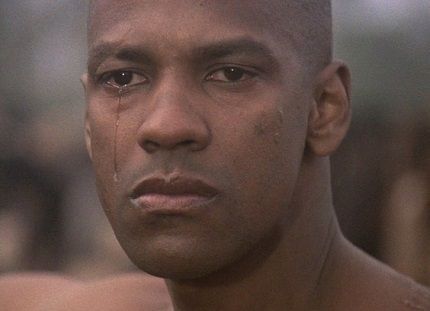
- frickin beautiful. I’ve been saying that “Black Panther” is for black people what “Wonder Woman” was for women in 2017. I can remember back when WW first came out last year, I was at the coffee shop down the street, feeding my addiction. There was a girl behind the counter – I asked her for my usual.
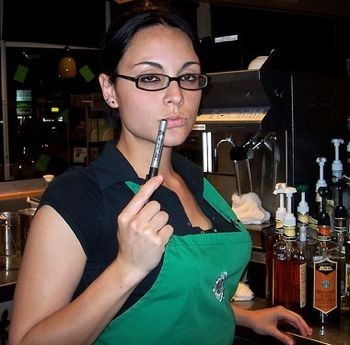
She replied “What so I’m just supposed to know what that is?” Praphit: “Well, I come here often, so…” Irritated Girl: “Wha, wha, what that mean? You just assume I’ve paid attention to you? Matter of fact, you just assuuuumed I’d get you some coffee this morning.” Praphit: “But, don’t you work here?” Empowered Girl who is starting to scare the Praphit: “What because I’m a woman I must be a servant huh?? Just another woman getting some man whatever he wants… that’s all I am to you?” Praphit: “… huh” Girl who must have believed she was Wonder Woman herself: “ Did you just call me a bitch?!” Praphit: “What? No!” An angry, scary version a WW: “But I bet you thought it!”

Then, she gave me the finger, mooned me(that's right, MOONED me! - who even does that anymore??)… and then walked out. Then, came The Harvey Weinstein Storm, men scared everywhere by #MeToo, and Louis CK hiding out… possibly wherever Kevin Spacey has been hiding out. I never did see her again... I also never got my coffee.
I hope she's ok and found another job. I know Gal Gadot (Wonder Woman) is her hero, but... it's not like she's gonna feed all of the inspired jobless ladies out there. Anyway, as strange as that encounter was, I get it! Empowerment will do that to a person; it feels righteous! Now, Black Panther, baby! Black people… we’re going to have a hashtag too. Maybe #bleepwhitey… that may be a lil strong, but something! It’s coming! This movie is a big deal! - so big of a deal that white executives in Hollywood were planted in critic circles in pre-screenings to stir up bad reviews.
The white people running Hollywood were like “We’ve gotta knock this movie down a few pegs before we have another ‘storm’ on our hands! Women are already rising up…. Black people rose up recently with #OscarsSoWhite, we can’t have it happen again. What’s next??! Who's gonna rise up next??! Asians?! Latinos?! Little People?! We can’t have this?!” There’s already a belief out there that you can’t have a worldwide blockbuster with the main character being black. So, how is this movie REALLY?? That’s why your Praphit is here for you:) “Black Panther” starts out right after “Civil War” (currently my fav comic book movie:) What I appreciate about Marvel movies is how well they are written; not just individually, but how they all come together. Of course (spoiler alert from “Civil War”) the king of Wakanda is dead, and now his son T’Challa (Black Panther) is heir to take over! Black Panther as we know is played by Chadwick Boseman. I love him as Black Panther!

Some may say he’s not aggressive enough to be king/BP, but I think someone who’s always calm, even when they’re angry is scarier than someone who wears their emotions on their sleeves. One second, you think everything is cool, and the next you’re on your back, hurting, with Chadwick Boseman smiling at you. Wakanda is beautiful! I like what Marvel did here. Marvel is really good at creating worlds that look and feel real. I'm willing to bet that some believe Wakanda is real... probably our president.

I'm telling you,there's a speech coming up when Trump will say something like
" We've got to make America great in tech again. I had Mike Pence go to the movie theatre to watch this documentary called "Black Panther", I had him leave quickly in protest (there were too many black and brown people there - I only bring it up because many of them were illegals..), but we had others stay and report back to me. Wakanda, this terrorist country... possibly where Barack Obama is really from; we don't know... we don't know... but, they turned their shithole of a country into an empire with this amazing metal called "Vibranium" (Idk if you've ever heard of it, because it's AMAZING). I'm telling you, we're going to get ahold of even more Vibranium than those savages and use it to make America #1 in tech again." - you tell me I couldn't write for the prez:) Many have described Wakanda as Zamunda (another fictional nation in Africa from “Coming to America”) in the future. I think those people have it right.
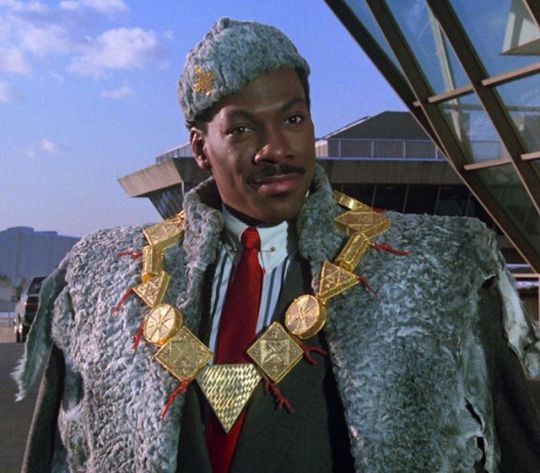
If Eddie Murphy took Zamunda 100 years into the future, and stole all of Apple’s tech (imagine how scary Apple will be in 100 years), and then came back to the present… and used this tech to create… idk… a super tech “Eddie Land”, it’d be Wakanda. They are also the leading source of Vibranium (strongest medal around this comic book universe). The plot is layered, but they make it work. I was surprised that a product of Disney would go into such deep waters. Race is of course dealt with – not only in the movie, but simply by this movie’s existence. I can remember when I was younger, the only comic book characters to dress up as or play make believe as were Superman, Batman, Spiderman, and The X-Men. But, no black characters. I mean… I could have dressed up like Storm for Halloween, but…

or it might have looked more like this -
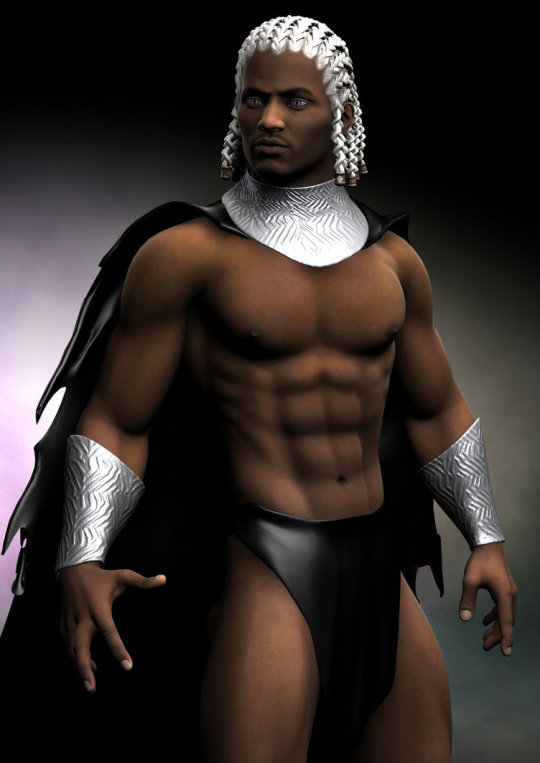
- maybe rock a... mankini silver top, and some dark purple eye shadow and lip stick... so there was that I guess. Picture me as a little boy dressed up like that - I'd make it work. Let’s move on:) I also love how these characters are portrayed – there are lots of different cultures of black people, but all the differences in appearance and worldviews are highlighted as positives in this movie. It truly is (on a comic book movie scale of course) a celebration of black people from different walks of life. There are no dummies or potheads or gangsters – but black people are all represented as strong, smart, and capable in this movie; even the villains! Michael B Jordan!

I probably liked him more than Black Panther. His character is smart, calculated, complex and easy to sympathize with, even though he’s the main villain. As far as portraying strong women – I think “Black Panther” does it even better than “Wonder Woman” did. Again, showing the strength of different types of women. Danai Gurira (whom I’m in love with by the way… just sayin’… if somehow you’re reading this… you can find me in Bmore:)

She has a scene in the beginning of the movie that displays courage, strength, command, and yet also warmth and beauty. It's hard to keep a strong willed woman character balanced in a story without it going in a wrong direction, or without her becoming "one note" (idk if y'all know what I mean), but the writing and Gurira's performance are perfect with this; as well as the other female characters - I'd love to see a movie with them as the stars. They also tackle colonialism, mainly through Martin Freeman.

This motha bleeper right here stole Samuel L Jackson’s part. Where the hell is Sam L?!

How you gonna have the blackest movie of the year without Sam L?!
Anyway, Martin Freeman does a good job, but I couldn’t watch him without getting mad. Whitey! - you just couldn’t let us have one movie to ourselves could you??! This movie even tackles politics, generational black community issues, African traditions, and culture wars in the black community (again through the filter of a comic book movie, but still). A lot of this movie is about what type of king T’Challa wants to be, what type of king his people want/need, and how (or if) a nation should use its strengths to help one other nations. Marvelous (no pun intended) how they blended all of these things together. Can I talk about the sexiness??! -cuz whew! My future wife

(I also love how her character (Okoye) is so confident and committed to what she believes. She should be running Wakanda to tell you the truth)
My other future wife
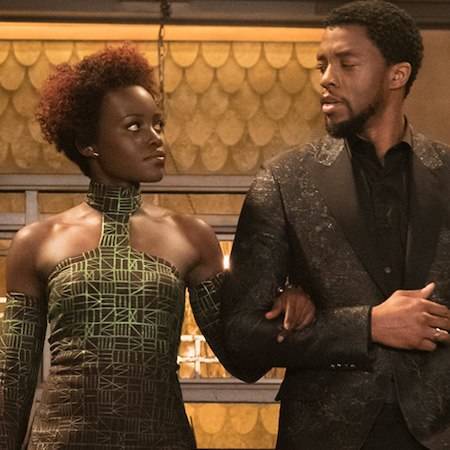
(Lupita Nyong'o here as Nakia has her arm wrapped up with T'Challa here... and I don't like the way she's gazing into his eyes, but I believe I've still got a shot. That dress made me fall out my chair.)
And many more – tons of sexiness in this movie, but not in an exploitive manner. It’s not just the looks, but the character, the ideals, the strength, the honor that adds to everyone’s sexiness.
And it’s the men too! Even I’ve got to admit that Michael B Jordan looks damned good.
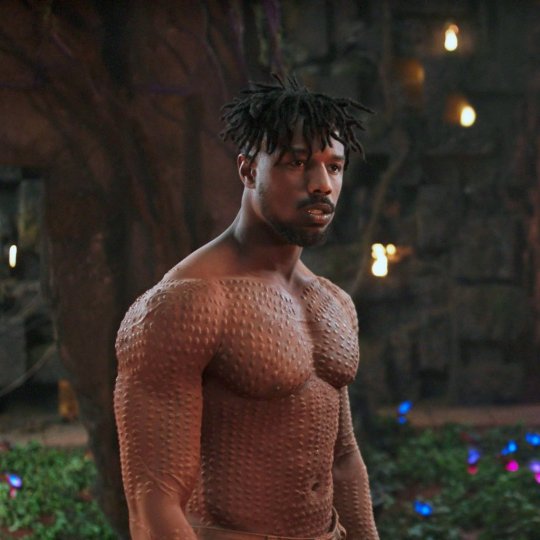
Though I couldn't find a good picture of him... you need context for what's going on with his torso (besides being jacked)... his hair messed up, and he looks like he has marbles in his mouth right now. Let me try again (not that he doesn't make that work).

There he is - with a lil nip slip action.
He's one of those men where when he walks in and steals your girlfriend or wife, you say to yourself "I understand." Shiiii, you get some drinks in you, and YOU might be leaving with him. Ladies, forget “Fifty Shades of Bullshit”, you’ve got all of the sexiness you need in this movie right here. So, you say “John Praphit, is there anything bad about this movie?” NO! Quit looking to downgrade black movies you racists! :) Nothing “bad”, but I did have a few issues. This IS a comic book movie after all, and despite the commendation I’d give this movie for veering off the typical Marvel scripted formula, I would have liked a lil more action. The action was good, but not great. Also, I would have loved more of Michael B Jordan. His character is so good! Mikey B does an excellent job making us feel - whether it’s sympathy, hatred, or disgust in his way of thinking; he makes it happen. I would have loved to see more of his interaction with the people of Wakanda. The ending felt rushed. Not only with characters jumping from loving one another to wanting to kill one another (and vice versa), but also in CG. It’s like they didn’t have enough in the budget to crank up the last fight scene… that money probably went to Martin Freeman
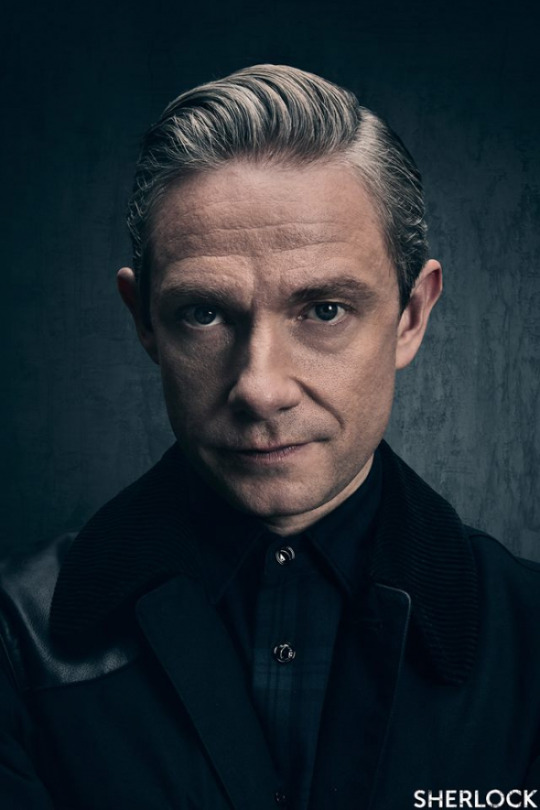
.. you rat bastard. I'm sorry. He was good, but still #wherethehellisSamL? Besides, all of that I loved this movie! Very entertaining! It was funny. It has a lot of good talking points in it. And it’s a big deal for black people! Grade: B+++ First time ever for a “B+++”!!! Originally, a B+, but an extra plus for blackness – seriously, I think it’s a game changer for not only comic book movies, but all types of movies… another stepping stone of progress. I truly believe it’ll have a positive creative impact on our youth as well. And the last plus is for sexiness, cuz.. da

Dammit! Not you Martin Freeman! So help me! *deep sigh* Now I forgot what I was going to say. Anyway, good stuff! On second thought... I'm going to give this movie two grades. The B+++, but also... when I think of his blackness (The king!) - the positive progressive impact that I believe this movie has and will have are too great not to give it an A My Semi Objective Technical Grade: B+++ Blackness Grade: A The only thing that could have made it better on that scale would be if I were in it.

Makes me wanna follow in the footsteps of that now probably homeless barista. Quit my job and march onto righteousness!
Can’t wait for “BP2!
#black panther#wakanda#john praphit#praphitproductions.com#Danai Gurira#lupita nyong'o#chadwick boseman#Praphit#movies#Movie Reviews#marvel#barista#womens rights#civilrights#black people#martin freeman
6 notes
·
View notes
Text
Waiting for Dramaturgy: Stone Jetty @ Edfringe 2017
New Edinburgh Fringe Show Shines a Spotlight on Grief and the Power of Moving On
Stone Jetty Productions presents
Waiting for Spring
It’s not easy to find something positive in the grieving process but that’s what North-West based theatre company Stone Jetty Productions are trying to do with their very first Edinburgh Festival show, “Waiting for Spring,” which will debut at the Fringe this year.
Venue: Emerald Theatre, Greenside@Nicolson Square (venue 209)
Dates: 14-19 and 21-26 Aug
Time: 10:15am (1hr)
Tickets: £9.50 (7.50)
What was the inspiration for this performance?
The idea came from a number of different places - It started off with just an image of a
man sitting on a couch alone and the ghost of his lost love leans out of the shadows to talk to him.
Originally it was focused around how she died and how he was/wasn't responsible, but I lost my father a few years ago and it changed my perspective on what was important about that image so that over time it became much more of an exploration into the reality of someone who's dealing with that loss.
Is performance still a good space for the public discussion of ideas?
Absolutely! there will always be an audience for live performance, be it concert, comedy or theatre anyway, but in the world of theatre over the past few years there have been some truly amazing shows, musicals particularly, which are driving a bit of a resurgence in popularity of theatre shows.
I think with theatre, because it's a little less popular than film or TV say, it gives people license to take more chances, try out new things and see what sticks
How did you become interested in making performance?
I've been involved in theatre since I was really little, first through school productions and then into university and finally as a professional.
I've always loved to act but it was only as I got a bit older, about 15/16 I became interested in how the shows actually go together, what makes a good show and in writing with a serious aim to put it out there for others to see.
Is there any particular approach to the making of the show?
The approach all Stone Jetty shows take is very collaborative, I like working with actors who are really involved with the process, most of our actors are also producers in one way or another and it makes for a really creative, fun process.
Does the show fit with your usual productions?
In as much as we have a usual production! Our aim is to bring something new and different every time. Sometimes that's in the writing or the style of the show, the format or use of media.
This show has a lot of heart to it and a combination of real moments of sadness combined with silly awkward humour that we've loved doing.
What do you hope that the audience will experience?
We hope they'll laugh, we hope they'll cry, all the usual! In all seriousness, the show is a bit of a rollercoaster emotionally, but we want people to leave feeling the spirit of the show - that we all have hardships to endure, but eventually it's going to be alright.
What strategies did you consider towards shaping this audience experience?
We've done a lot of research towards this piece because we wanted the emotions Jack goes through to reflect reality as much as possible and hopefully resonate with people.
We've also been very careful to vary the tone of the show - when you're performing a piece about depression it can be very emotionally draining and we wanted to make sure everyone has a good time as well as feel connected to the characters. We think the result is very watchable.
“We wanted to cast a light on the issue of mental health in the wake of loss,” says writer/director Sarah Wilkinson, “but at the same time, make the play accessible to everyone and ultimately make something that was hopeful for the future and leaves people feeling optimistic.” No easy task, but the cast are eager for the challenge.
And the play certainly delivers on that aim as, told from the point of view of Jack, (played by Anthony Cole) it explores his journey through the well-known Kubler-Ross “five stages of grief” while he and his friends Emma (Leni Murphy) and Andy (Marcus Christopherson) deal with the loss of his girlfriend.
Told via a mixture of flashbacks, present-day scenes and a touch of Greek mythology, and helped along by a ghostly spectator in the guise of girlfriend Annie (Steph Reynolds) the setting for Jack’s struggle to deal with his past is a stylised, supernatural take on a story that is all too human and recognisable for many of us.
“Grief is a very common route to depression, but there’s often not a lot in place to help people deal with it in a healthy way. What we wanted to do with the show is look at the complete journey of someone going through that process and how it can feel like an endless toil when you’re in it, but there is light and a future out there if you can keep going” says Sarah. “It’s not a straightforward thing and Jack does go back and forth between very strong emotions in the play, but he does ultimately recognise that he needs to move forward, he just has to find a way to do it.”
But the play isn’t all grief and misery, in fact the take is surprisingly light-hearted for the subject matter at hand, and the play advertises itself as more dramedy than outright drama.
“I think humour one of the strongest coping mechanisms we have,” Sarah continues “so it made sense to me to try and put the two things together, but it meant keeping a difficult balance so we didn’t lose the meaning of the show or disrespect the emotions behind it. I’ve had some experience with it myself and it was important to me to show what people really go through – which isn’t always as simple as sad/not sad.”
from the vileblog http://ift.tt/2gSBEtD
0 notes
Photo
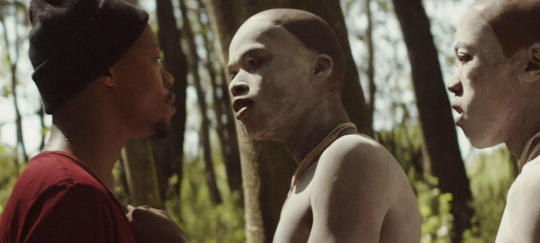
Latest story from https://movietvtechgeeks.com/sundance-day-8-wounds-queer-perspective-plus-throughbred-sidney-hall/
Sundance Day 8 'Wound's' queer perspective plus 'Throughbred,' 'Sidney Hall'
The 2017 Sundance Film Festival is nearly over, and as we’re basking in the glow of fresh air and theater lighting, it’s exciting knowing that some amazing treasures found here will be resonating with today’s world. Some of our favorites picks of today are John Trengrove’s fascinating The Wound which really gives an eye-opening look at a South African secretive rite of passage for boys entering into manhood.
Thoroughbred is another very interesting one that many people can relate to about two friends trying to rekindle their connection. It reminded me of when you home five years or more after high school and run into some of those same people who never left your town. You realize how much you’ve changed in that time and trying to connect again is nearly impossible, especially for those that haven’t changed at all in that same timeframe.
‘THE WOUND’ PRESENTS A QUEER PERSPECTIVE ON A SOUTH AFRICAN RITUAL OF MANHOOD
For his enthralling debut feature, South African filmmaker John Trengove lifts the veil on the secretive rite of passage from boyhood to manhood in a remote area of South Africa. The Wound follows Xolani (Nakhane Touré), a forlorn factory worker, as he travels to an obscure mountain camp where teen boys go through the traditional Xhola initiation. Xolani has been assigned to mentor a friend’s son, Kwanda (Niza Jay Ncoyini), who notices the attraction between Xolani and another caregiver, Vija (Bongile Mantsai), who is not only secretive about his sexuality but also prone to bursts of explosive behavior.
Following the screening, Trengove, who is white and self-identifies as queer, said he made the movie because there’s a complete lack of queer imagery in the African film canon. “It came out of a sense of urgency,” he told the audience. “For myself as an outsider, it’s something I could speak about more freely than someone who is inside the culture. I’m speaking about same-sex desire. As a queer filmmaker I was able to introduce the subject into this very intricate world and practice.”
Describing the project as the result of profound collaborations, Trengove revealed that to achieve authenticity he spoke with a South African novelist who had been through the initiation himself, and the two men began to create the story together. The three principal actors in the film each in his own way made a formidable contribution to the film, not just in terms of what an actor does but in making the characters their own and contributing something quintessential and unique to their own experiences.
Trengove noted that the film’s subject matter is very controversial in South Africa, despite being the subject of various documentaries and news articles and even being mentioned by Nelson Mandela in his autobiography. “I think our film comes at a moment when there’s a growing conversation about a sensitive subject,” he stated. “The ritual has come under fire for reasons of relevance and safety. I think equally it’s still regarded as a meaningful process that boys go through that shows them their place in the world of men.”
The director praised the courage of his three lead actors for taking on the roles. “I was very fortunate to have the bravery of these three actors to collaborate on what you saw tonight,” he said. “They did it for their own very personal reasons, primarily out of a conviction that these are stories we need to begin to speak out.”
THOROUGHBRED: OLIVIA COOKE AND ANYA TAYLOR-JOY CONSPIRE TO MURDER
With his debut film, Thoroughbred, Cory Finley finessed his way through two major challenges that could confound another first-time filmmaker. The first, as he told the audience during a post-screening discussion on Thursday at the Yarrow Theatre, was a transition from theater to moviemaking. And the second was pulling off a nuanced tone that at once straddles comedy, drama, and thriller.
The film stars Sundance Film Festival veterans Olivia Cooke (Me and Earl and the Dying Girl) and Anya Taylor-Joy (The Witch) as Amanda and Lily, two old school friends who uneasily try to rekindle some kind of connection. Though Amanda is emotionally blocked, incapable of showing or perhaps even having feelings, chilly Lily slowly reveals herself to be in greater crisis, as she bristles against a stepfather whose strictness is driving her to entertain wicked thoughts.
Finley talked about how Thoroughbred started out as a play but became a film. “When it was a play it really was a kind of philosophical, moral discussion between these two characters on one couch. It started with asking questions about myself, and attacking some of my own fears and anxieties about my own mind and moral compass, through writing,” he said. “As I started getting towards the later drafts of the play, I realized that there was something about it that was very film noir. And even though it was contained in one household, I started becoming aware of all the things I could do cinematically.”
Producer Alex Saks talked about her first conversation with Finley, after coming across what was still a play. “Within five minutes I knew that even if he didn’t know it yet, he was going to direct the movie — and that he was a filmmaker,” she said. Finley described trying to make up for his inexperience by reading books, watching movies, and visiting film sets in the months before his first shoot. “I tried to cram in as much preparation as possible so that I could communicate effectively with the whole crew,” he said. “But I was certainly learning a lot on the job.”
And as for that fine-tuned tone, Finley said it was something they consciously refined from rehearsals through the shoot and then in editing. “We talked about [the tone] as being a narrow tightrope,” he said. “I was lucky to get a couple of days of rehearsal before we started, with the two leads, and we came to a clear understanding of the tone that we were all aiming for. And then in the editing process we had another chance to really look carefully at these scenes and play very specifically with timing and pauses and different takes. There’s a fun balance to be had in trying to provoke an audience to laugh and also to be slightly afraid. The two emotions, if you can balance them, go well together.”
Though he said he still plans on producing more theater, Finley’s first foray into filmmaking has him hooked. “I’ve fallen in love with the tools to which a director has access,” he said. “So I’m definitely looking forward to playing around in this world more.”
WINNIE: A DOC ABOUT WOMEN, POLITICS, AND MISOGYNY
With WINNIE, the new documentary about Winnie Madikizela-Mandela, Pascale Lamche offers an illuminating portrait of the complex story of the woman, who is often cast in the shadow of legendary human rights activist Nelson Mandela, her husband of 38 years, even though she fought on the frontlines to end apartheid during the 27 years he was imprisoned.
While Winnie’s story has been capably told by other filmmakers and documentarians and through countless books and articles, Lamche manages to create a fresh, thorough, and likely definitive study by using revealing new interviews, as well as a veritable treasure trove of newly uncovered archival materials.
“I interviewed Nelson twice for previous films, and each time it was a great honor to meet him and speak to him and spend time with him, but I was always very intrigued by Winnie,” Lamche told the audience at the post-screening Q&A. The director noted that, while Winnie is mostly venerated in her home of Soweto, South Africa, Lamche learned that her subject was also widely demonized in many European capitals for her crusade against racism, and a smear campaign was launched against her. “That seemed like a space to explore,” the director offered.
Through a meeting and conversation with Mandela’s daughter Zindzi, who also speaks on camera in the doc, Lamche was eventually introduced to Winnie. She ended up interviewing her subject four times over a period of two years, including once just after the death of her former husband, when she was still dressed in her black mourning clothes.
“On each occasion, I tried to pull back another layer of the story,” Lamche shared. “Each time I met her I uncovered more in the story because I’d been digging away and making progress with the people who’d been her enemies. I never went to her with specifics and said I interviewed this guy who waged this warfare campaign against you. As our relationship progressed over time, it deepened. I hope that’s apparent in the film.” As her film skillfully explores the intersection of women, politics, and misogyny, it’s not a challenge for audiences to draw a strong parallel between Mandela’s story and the current political climate in the U.S.
PERSON TO PERSON: A SUBTLE, OPTIMISTIC COLLAGE OF EVERYDAY NEW YORKERS
“I made [this movie] with a lot of friends. And it’s about tenderness, it’s about friendship, it’s about wanting to have a friend, and what it’s like to be a friend, and what it’s like to lose a friend,” explained director Dustin Guy Defa as he introduced his latest project, Person to Person. Defa makes his return to the Festival after his 2014 short film of the same name.
The feature, shot in retro 16mm, follows various characters throughout one day in New York City, including a moody teenager putting up with her best friend’s antics, an endearingly simple man trying to buy a rare vinyl record (Bene Coopersmith, who also starred in the short film version of the story), a depressed guy attempting to reconcile with his girlfriend after hurting her, and an anxiety-ridden rookie reporter who feels completely out of place her first day on the job. But unlike other films that depict a large ensemble of characters with different story lines, this one doesn’t aim to connect them in any obvious way other than the fact that they’re in the same city.
Defa said that when he first thought of the idea for this project, “I got very excited … to make such a variety of people and to not necessarily connect them. So I got very excited [about how to] pull it off. I developed all the characters separately. … But once I started actually working on the outline and the writing, I was interconnecting it in other ways that aren’t visible. … Even though they all had such different things and different tones and things like that, I was still connecting them thematically in many ways. And so I needed the flow to really work even though all these people had such different things going on.”
When asked which characters he relates to the most, Defa revealed, “They’re all me in many ways. I’ve done stupid things in my life, I’ve treated people weirdly, and then friendship is very important to me [like it is with Bene]. And Wendy the teenager is definitely me as a teenager in many ways. … But I don’t have a favorite.”
The characters don’t necessarily go through anything captivatingly dramatic, but Defa’s purpose wasn’t to have audiences on the edge of their seats. He explained that, amid many abrasive, visceral depictions that often appear on the screen, he simply wanted to create “a nice place to go for an hour and a half” — to which the audience applauded in agreement.
SIDNEY HALL: A PRECOCIOUS WRITING TALENT DRIFTS INTO OBSCURITY
Sidney Hall, which premiered on Wednesday night at the Eccles Theatre, spans 12 years in the life of the eponymous character, from the moment that the precocious high school kid becomes a celebrated author to his apex of fame and emotional nadir, and to his time disowning all that he’d become and drifting into obscurity. Remarkably, those 12 years mirror the 12 years it took writer-director Shawn Christensen and writer Jason Dolan to see the project to completion.
“Shawn was in a great band called stellastarr*, and when he was on tour I sent him the first couple of pages of the script, and we went from there. It was the summer of 2004,” Dolan said during the post-screening Q&A. “We wanted to tell a story about perspective — what it’s like to think about how you were at 18, 24, and 30. We chose those ages because those were the ages we were at when we were writing the script.”
The breadth of time covered presented challenges for both the crew and the performers, including Logan Lerman as Sidney and Elle Fanning as his neighbor and later wife, Melody. “The transitions between ages — sometimes we had only hours in which to do it,” Lerman recalled.
“We shot 10 days of [age] 18 first, then we shot the [age] 24 segment, and then we shot the 30, with the intention of having a weekend in between each era,” Christensen said. “But actually for Elle and for Logan I had to break the news to them that we were going to have to switch from 18 to 24 over the lunch break.”
Though it seems like such a quick shift in age would be challenging, Fanning explained, “You can’t really think about playing older or playing a certain age, because what does that really mean?” She continued, “I was more interested in where Melody was in her life.”
The script doesn’t take a straightforward chronological approach to those eras, and instead interweaves them throughout, such that it’s only at the end that you know how the characters resolved each of those dramatic moments. Dolan explained that he hoped audiences would connect to that structure because “your life is sometimes a mess in your own mind.” He said, “What we wanted was to give people a puzzle to put together, to reflect on this character and also themselves.”
Movie TV Tech Geeks News
1 note
·
View note